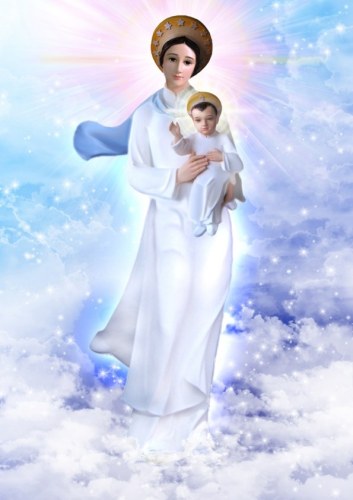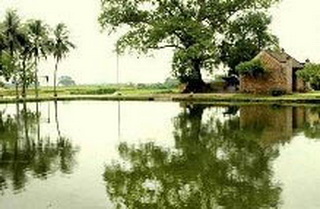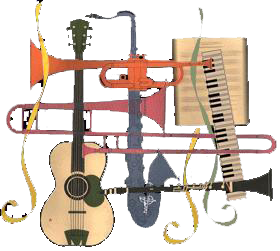The Scholar And The Moral Compass
Apropos of the children’s book The Sea Scholar by Khái Hưng
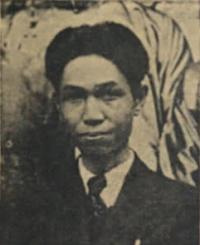
Khái Hưng
Khái Hưng is an alias of renown writer Trần Khánh Giư (1896-1947), a native of Hải Dương Province (North Vietnam). He was one of the founders of the iconic Self Reliance Literary Group of the 1930’s (Tự Lực văn đoàn, founded 1932). He was a major contributor to its periodicals (Phong Hoá and Ngày Nay) and produced numerous works of fictions. His most well known works are Nửa Chừng Xuân, Hồn Bướm Mơ Tiên, Anh Phải Sống and Đời Mưa Gió ( the last two with Nhất Linh). In 1939 he became active in politics, specifically with other nationalists against the French. Finally, in 1947 he was killed by the Việt Minh for his affiliation with the Đại Việt Party(1). Khái Hưng is more famous for his romantic short stories and novels in modern and concise Vietnamese than for his children’s books (known as “Sách Hồng” (Pink Books), among them: Cái ấm đất [The Terra Cotta Kettle], Cây tre trăm đốt [The one hundred knot bamboo tree]).
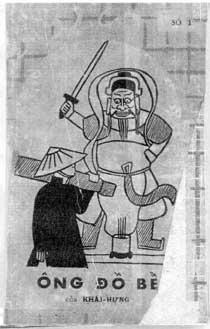
Figure 1: The original cover (picture from Vu Anh Tuan’s article)
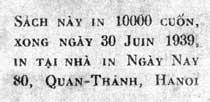
Figure 2: “This book was printed into 10000 copies, date of completion June 30, 1939,
at the Printing House Ngày Nay,
80, Quan- Thánh, Hanoi”
In Reminiscences about 60 years of collecting books (Hồi ký 60 năm chơi sách), Vietnamese author Vũ Anh Tuấn tells about his joy when he finds a copy of a children’s book The Sea Scholar (Ông Đồ Bể) by Khái Hưng. He read The Ocean Scholar for the first time in 1945 at the age of ten. He said he loved the book for the interesting story and for the lessons in morality intended for young people. In 1974, a book dealer gave him a copy of the same book and suggested that he translate it into English. He read it more thoroughly the second time and had a greater appreciation for the depth of the story. Unfortunately, in light of the arrival of the communists in April 1975, he never had the opportunity to write a translation. Recently, at the age of 72, he rediscovered the book : “This time, he wrote, holding the book in my hands, and reminiscing about my childhood, I spent one hour reading it for the third time and, strangely, I appreciate it even more so than I did when I was planning to translate it 30 years before. Is it because at an age triple the number of my 24 youthful years, the experiences that I have lived through have allowed me to understand how my preferred episodes of the story are so useful to any young person starting to experience life, as well as to any adult who wants to live with strength, pride and honesty.”
Author Vu Anh Tuan (3) was so enthralled by his new-found trove that he included a large part of the 28 page short story in his memoir, which was then posted online (2). That is how I found my (partial) copy of my favorite childhood story that I used to read over and over again when I was ten years old. For me, it is a wonderful trip back to the innocence and idealism of youth. I want to share it with young Vietnamese now who are likely more inclined to watch a movie about a superhero or cartoons than an old tale about an honest Confucian scholar. I also dedicate this tentative translation and adaptation to people of the older generations, not to them as grownups but to their former selves as children (to paraphrase Saint Exupery in his dedication of “The Little Prince”, as many grownups may argue that life would be less bearable without prayers and even a few lies).
In the following English version, paragraphs in italics are reconstructions based on my memory about the original story by Khái Hưng. The remaining is based on the Vietnamese version quoted by Vũ Anh Tuấn in his book, without which this article could not have been written.
Hien V. Ho
(1) Danny J. Whitfield, Historical and Cultural Dictionary of Vietnam
(2) http://diendan.songhuong.com.vn/showthread.php?t=3488.
(3) A biography of Vu Anh Tuan (born 1937 in Hai Phong, North Vietnam, a former teacher of English, now a professional translator) can be found here:
http://newvietart.com/VUANHTUAN-saigon.html
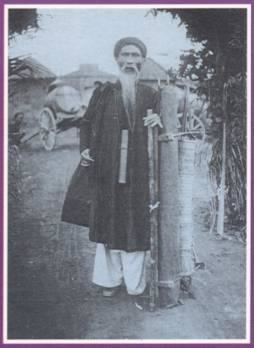
Figure 3: A scholar-candidate with his accessories
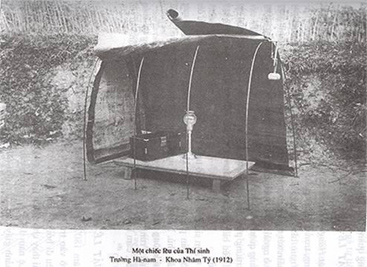
Figure 4: A candidate’s camp bed and its canopy (Hà Nam Center, 1912)
The Sea Scholar
(Adapted from Ông Đồ Bể by Khái Hưng)
People called him the Sea Scholar, not because he lived by the sea but because of his knowledge that was supposed to be as vast as the sea.
“Already twenty-four years old, with his belongings wrapped up in a bundle, his camp bed and its arched top, the scholar took the road to the capital city of the Ascending Dragon (Thăng Long), to take the interprovincial examination (*). On his way, he took a respite at an inn near an old temple. The inn keeper reminded him to take off his hat and bow his head when he walked by the temple, because the deity who resided there was very powerful. He smiled and said:
-In this blazing sun, it would be shame to catch a cold by taking off my hat.
The vendor fearfully glanced at him:
-Not as bad as being stricken dead by his Sainthood!
He calmly retorted:
-But has he stricken anyone?
In a low voice, the lady started to enumerate the magical deeds of the deity. Then she went on:
-I suppose you are bound for the examination with your camp bed and your sedge mat. You should buy some devotional sham gold and incense sticks and go to kowtow before his altar. Then, without fail, your name will appear on the list of successful candidates.
The scholar put forth a stern face and vehemently said:
-If one has studied rigorously then one must pass the exam. If not prepared, then one should wait until the next examination. A gentleman should never beg or kowtow to anyone for the purpose of passing an exam.
He then immediately paid for his drink and left.
In front of the temple, he paused to contemplate the old banyan tree, with its dense branches and leaves almost completely covering its moss-overgrown roof. On either side of the entrance, two clay statues with their red faces and their wide-open eyes seemed to stare at those passing by, raising their swords as if ready to slash someone. On the roadside, there was a stone with two engraved Chinese characters: “Dismount horse.”(**)
The scholar thought to himself:
-The sign says ‘dismount’, but I am not riding a horse. As far as taking off my hat and bowing my head, there is no mention of these things. Therefore, let me walk by in a dignified and poised manner. A gentleman is supposed to bear heaven above and tramp the earth below without arrogance but also without obsequious fear.”
The scholar calmly proceeded past the temple. After about ten steps, he heard a noise behind him and turned around. A man stood before him who dressed similarly to himself, also with a mat and a cot bed on his shoulder and holding his belongings in a bundle. Surprised, he asked:
-Are you going to the capital for the competition too?
-Yes, sir.
-I did not see you at the inn. Which road did you take?
-I just came out of the temple, the other man replied. This was true, for it was the deity himself who was disguised as a candidate to the exam.
The scholar asked:
-Why did you go to the temple?
-I went to pay my respects to the deity there so that he will help me successfully pass the exam with a high ranking. Because his sainthood is so propitious and willing to help, you will surely get what you pray for. However, those who disrespect him will be punished by death.
This was a threat from the deity, but the honest scholar was so naïve that he paid no heed. He even candidly asked a question which the deity considered as a provocation:
-The living and the dead belong to separate and different worlds, how can his sainthood strike dead any living human?
-But he has his magical power.
The deity hesitated but then went on:
-When I was in the temple, it appeared to me that you did not take off your hat, nor bow your head when you walked by.
-Yes, that is true. I meant no disrespect toward the deity. It is sunny and I must wear a hat. Furthermore, our heads are made to be held straight at the top of our necks, there is no reason to bend them to the side or to bow them down. Only cowards and the dishonest, without self-respect or a clear conscience, have to fear and be obsequious.
The deity smiled sarcastically:
-So it is clear that you are an honest man with a clear conscience?
The scholar was not offended and answered calmly:
-I only know that in my life I never lied once and never did anything illegal. As to whether I am honest or whether my conscience is clear, in fact I cannot brag about my honesty or my clear conscience.
The deity thought to himself: You say that you have never lied nor done anything illegal. I will follow you and wait until you lie just once, or do one thing illegal, and then I will punish you. I will strike you dead so that your soul cannot hold any grudge against me, and cannot drag me to the tribunal of the Underworld.”
From then on, the deity was always at the scholar’s side. He used his magical power to create multiple compromising situations to entrap the scholar…However, in every situation, the scholar acted with such transparency, correctness and intelligence that, eventually, the deity had to give up. Thereafter, his hate was replaced by love and admiration. He continued to follow the scholar, not as an enemy that he wanted to entrap, but to help and protect him.
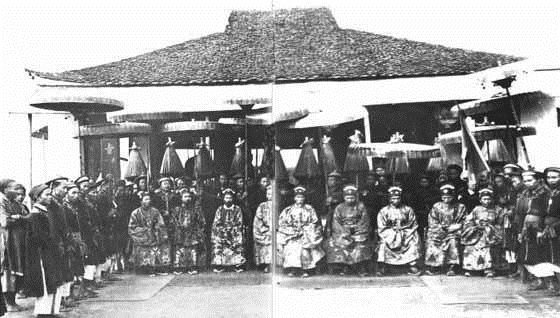
Figure 5: The jury of the examination/competition (from http://nguyentl.free.fr/index.htm)
In the Ascending Dragon City (Thăng Long, now Hà Nội), while waiting before being secluded in the enclosed camp where the exam would take place, they overheard that the president of the jury was less than honest and without a bribe, it would be very difficult for any candidate to be successful. The scholar refused to believe this information, but this corrupted practice actually did happen. The examiner found that the papers submitted by the scholar were marvelous but he was angry about being ignored by the stubborn candidate, so he put a failing grade on every one of his submissions. It was then that the deity intervened, used his supernatural power to change every “Fail” to “Excellent”, so that the scholar passed the whole four-step competition with the highest grade. The candidate that the corrupted president of the jury had intended to put on the top of the successful list was therefore demoted to the second rank, to the surprise of the president who had to refund twenty of the fifty silver teals that he had received as bribe. On the day of proclamation of the names of successful candidates, a large crowd came to watch with excitement. The beauties of the city of the Ascending Dragon jostled to catch a view of the new valedictorian. However the latter did not pay attention to any of the demoiselles, went straight to the mandarins, received the gown and the hat bestowed by the King and quickly left. Fearing that he might run short of traveling fund, the new laureate returned to his village the next day.
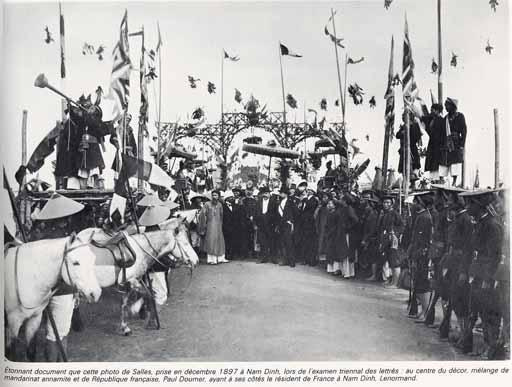
Figure 6: Announcement of the names of successful candidates (Nam Định, 1897)
(http://nguyentl.free.fr/index.htm by Nguyễn Tấn Lộc)
As the scholar walked by the temple, the deity went out to meet him.
-Greetings to the new bachelor of letters! (***)
The valedictorian assumed that his friend had failed the exam and then after hearing the news of his success had taken off furtively. He tried to offer him a few words of consolation:
-About the results in examinations, it is nothing more than a matter of fate. If you failed this exam, you only have to wait until the next one. For some one talented like you, there is nothing you should worry about!
-It was the first time that you lied. You are well aware that it takes an outstanding talent like you to be successful, so why do you have to console me with those frivolous niceties about fate?
The valedictorian smiled with him. The deity continued:
-But now, even if you told an innocent lie to a failed candidate to make him feel better, I would not try to punish you because you have become a very close friend of mine.
As the valedictorian was extremely surprised and clueless, the deity then told him the whole story, from the moment he walked by the temple to the announcement of his success at the exam. Then the deity disappeared. The valedictorian sadly thought to himself: “So, actually, I passed the exam thanks to the intervention of a deity. Then, my title of valedictorian would not have any value”. That thought did not leave his mind as he walked home alone, until he reached the entrance of his village. That is why, when people from the village came in drove with banners and parasols to greet him, he gestured them away, saying:
-Please go home. I did not pass the exam at all and there is no reason to escort me to the village. I still am your old sea scholar, gentlemen.”
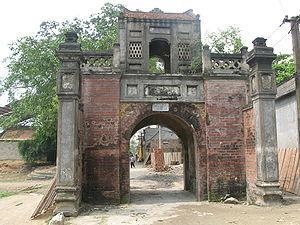
Figure 7: Entrance of a village in North Vietnam (Thổ Hà, Bắc Giang)
(courtesy Bùi Thế Tâm, Wikipedia.org)
So the news about the scholar refusing his new title spread out quickly to reach the capital city. The King was so surprised by such an unprecedented display of honesty that he wanted to investigate the matter himself. The scholar was convened to the court and given the opportunity to explain his situation to the highest authority of the country. But then, the deity, so moved by the scholar’s unexpected decision, volunteered himself as an unchallenged witness in his favor in front of the King. The corrupted president of the jury was demoted and exiled to the most remote area of the kingdom. The King admired the scholar’s knowledge, character and wisdom so much that he gave him his most beautiful daughter and made him Prince Consort. At their wedding, the deity brought a special gift for the most honest groom on earth, a splendid diamond ring with its unique magic power: if its owner said a lie, it would disappear forever. The Scholar –Prince Consort loved his bride so much that he gave her the ring, putting it on her finger at the wedding ceremony. He was the happiest husband on earth because his wife would never dare lie to him for fear that the ring would go away.
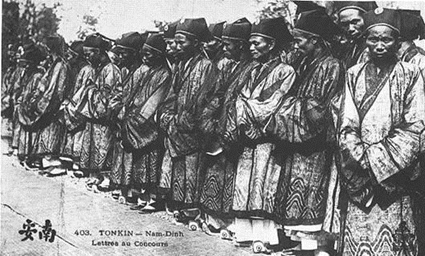
Figure 8: Reception of gowns and hats by the new laureates
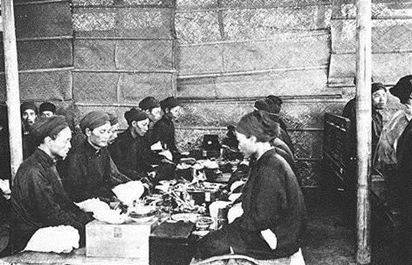
Figure 9: Royal banquet for the laureates
(Fig. 3,4,5,6 from fhttp://letanthanh.com)
Notes:
*
‘Ông Đồ’ has been translated as scholar for its generic meaning.
Thi hương: According to Trần Trọng Kim in Việt Nam Sữ Lược (Synopsis of Vietnamese History), under the Lý dynasty in 1075, took place the first exam called Tam trường (interprovincial competition, consisting of three steps) to select mandarins among scholar-candidates. It was the first exam in Vietnam, and 10 people were chosen. In 1076, Quốc tử giám (Royal/National College), the equivalent of a modern college was established. In 1086, a competition was established to select members to the National Academy (Hàn lâm viện). In 1232, under the Trần Dynasty, the first exam was created at the doctoral level (Thái Học Sinh/Tiến sĩ). Nguyễn Trãi (1380-1442), a military genius, writer, poet, artist and statesman, who helped Lê Lợi defeat the Ming Chinese invaders, was a Thái Học Sinh
** H ạ m ã
*** Cống : Prior to Emperor Gia Long (reigned : 1802-1820), Hương Cống or Ông Cống was a candidate who passed all four steps of the interprovincial competition (thi hương), the equivalent of a Bachelor of Arts, eligible for the doctoral competition. The top candidates who passed only three steps were called Sinh Đồ, or Ông Đồ (three Sinh Đồ for every Hương Cống). Later Hương Cống and Sinh Đồ were respectively called Cử Nhân and Tú Tài.(Nguyễn thị Chân Quỳnh in Lịch sử thi cử Việt Nam , in Vietsciences.org). In this article
Hien V. Ho
Great Falls, October 17th, 2009
Edited for Lang Hue September 14, 2013
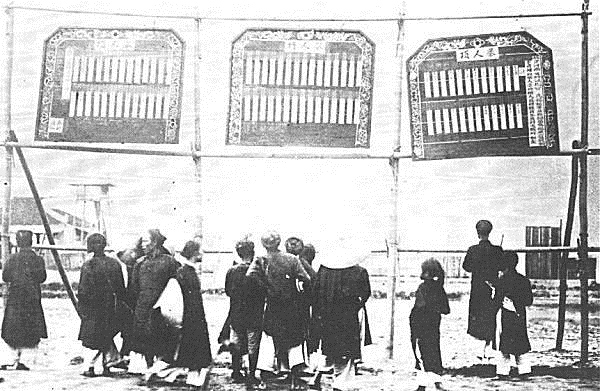
Dân chúng xem bảng yết danh những người thi đỗ kỳ thi Hương năm 1897 (Wikipedia)
Appendix:
Original Vietnamese text quoted by Vu Anh Tuan:
“Năm 24 tuổi ông Đồ Bể mới khăn gói lều chõng ra Thăng Long thi Hương. Trên đường đi ông vào nghỉ chân uống nước ở một cái quán cạnh một tòa miếu cổ. Bà hàng nước dặn ông khi đi qua miếu phải bỏ nón, cúi đầu vì đức Thánh ngài thiêng lắm. Ông mỉm cười đáp:
- Trời nắng chang chang thế này mà bỏ nón ra nhỡ bị cảm thì khốn!
Bà hàng mắt lấm lét nhìn ông:
- Chả khốn bằng bị ngài vật chết.
Ông đồ thản nhiên hỏi lại:
- Vậy ngài đã vật ai chưa?
Bà hàng hạ giọng thì thầm, kể cho ông đồ nghe những phép thiêng của ông thần. Rồi nói tiếp:
- Chừng thầy khóa mang lều chiếu đi thi. Vậy thầy nên mua vàng hương vào miếu lạy thánh mà cầu phúc, thì thế nào cũng được tên chiếm bảng vàng.
Ông Đồ Bể nghiêm sắc mặt, khẳng khái đáp:
- Học thành tài rồi, tất thi đậu, mà chưa thành tài thì đợi đến khóa sau thi lại. NGƯỜI QUÂN TỬ KHÔNG BAO GIỜ CHỊU ĐI CẦU KHẨN, LẠY LỤC AI ĐỂ ĐƯỢC ĐỖ. (Đoạn này nếu được mọi người áp dụng thì đất nước ta nhất định sẽ tránh xa được vấn nạn TIẾN SĨ DZỔM, BẰNG MUA BẰNG VÉ - Lời của người bàn viết).
Dứt lời, trả tiền nước, đứng dậy đi liền.
Tới miếu, ông đồ dừng lại ngắm nghía cây đa cỗi, cành lá rườm rà che gần kín cái mái rêu phong. Hai bên cửa miếu, hai pho tượng đắp bằng đất, mặt đỏ, mắt trợn tròn như nhìn tròng trọc khách qua đường, và tay cầm thanh gươm giơ lên như lăm le muốn chém ai. Bên đường một cái mốc đá với hai chữ “HẠ MÔ nét khắc đã mờ.
Ông đồ nghĩ thầm:
“Biển đề hạ mã, nhưng ta có cưỡi ngựa đâu mà bảo xuống ngựa. Còn như ngả nón cúi đầu thì không thấy có yết thị. Vậy ta cứ đường hoàng dõng dạc mà đi. NGƯỜI QUÂN TỬ ĐẦU ĐỘI TRỜI CHÂN ĐẠP ĐẤT, KHÔNG KIÊU NGẠO VỚI AI NHƯNG KHÔNG KHÚM NÚM SỢ AI.”
Và ông đồ ung dung tiến qua miếu.
Vừa đi khỏi mươi bước, nghe có tiếng động sau sau lưng ông quay lại. Một người y phục từa tựa như ông, và cũng vai mang lều chiếu tay xách khăn gói. Ông ngạc nhiên hỏi:
- Tiên sinh ra kinh kỳ ứng thí?
Người kia đáp:
- Thưa vâng.
- Tiên sinh đi đường nào mà vừa giờ tôi không gặp tiên sinh ở quán.
- Tôi ở miếu ra.
Người ấy nói thực. Vì đó chính là ông thần biến thành hình một thầy khóa đi thi. Ông đồ hỏi:
- Tiên sinh vào miếu làm gì thế?
- Tôi vào lễ đức thánh để cầu khấn ngài cho được đỗ… cao. Vì ngài thiêng lắm ai cầu gì được nấy, mà ai vô lễ với ngài cũng sẽ bị ngài vật chết.
Đó là lời đe doạ của ông thần, nhưng ông đồ ngay thẳng vô tình không lưu ý tới. Ông còn thật thà hỏi một câu mà thần cho là có ý nghĩa khiêu khích:
- Âm dương cách biệt, ngài làm thế nào mà quật chết được người trần?
- Ngài đã có phép chứ.
Rồi ông thần ngập ngừng, nói tiếp:
- Ban nãy tôi đứng trong miếu nhìn ra thấy tiên sinh đi qua miếu hình như không bỏ nón cúi đầu.
- Vâng, chính thế. Tôi tưởng thế cũng không phải là khiếm lễ với thần. Trời nắng thì phải đội nón. CÒN NHƯ CÁI ĐẦU NÓ ĐƯƠNG THẲNG THẮN Ở TRÊN CÁI CỔ CAN CHI LẠI NGHIÊNG NÓ ĐI, LẠI CÚI NÓ XUỐNG. CHỈ CÓ NHỮNG KẺ HÈN HẠ, KHÔNG BIẾT TỰ TRỌNG HAY KHÔNG CHÍNH TRỰC, QUANG MINH MỚI KHÚM NÚM SỢ HÃI MÀ THÔI. Ông thần mỉm cười, mỉa mai:
- Vậy hẳn là ngài chính trực, quang minh?
Nhưng ông đồ đã không tức giận và thản nhiên đáp:
- Tôi chỉ biết bình sinh không nói dối một câu, chưa bao giờ định làm một việc phi pháp, còn như có chính trực, quang minh hay không, thì quả tôi không dám khoe khoang rằng tôi chính trực, quang minh.
Ông thần thầm nhủ: “Được rồi! Mi bảo mi không từng nói dối, không bao giờ làm việc phi pháp. Vậy ta sẽ theo mi để chờ mi nói dối một câu, hay làm một việc phi pháp, bấy giờ ta sẽ trị tội mi, ta sẽ quật mi chết tươi, cho hồn mi không còn oán hận ta được nữa, không còn đến kiện ta ở trước cửa toà Diêm Vương được nữa.”…
Và từ đó ông thần đi theo sát bên cạnh ông Đồ Bể. Ông đã dùng phép thần thông để tạo ra rất nhiều tình huống nhằm gài bẫy để ông Đồ Bể mắc phải và để lộ chân tướng. Tuy nhiên trong tất cả mọi tình huống, ông Đồ Bể đã giải quyết một cách thật quang minh chính trực, và thật thông minh nên cuối cùng ông thần đành phải chịu thua, và rồi… kể từ đó sự ghét bỏ bỗng trở thành lòng yêu thích, kính phục và ông thần tiếp tục đi theo ông Đồ Bể, không phải để thù ghét, gài bẫy, mà để bảo vệ, giúp đỡ. Tới Thăng Long, trong khi chờ đợi nhập trường thi, hai người được nghe thấy các thí sinh khác đồn rằng quan chánh chủ khảo không được liêm khiết cho lắm và nếu ai không chịu khó đút lót thì khó mà đậu được. Nghe vậy, ông Đồ Bể nhất định không chịu tin, nhưng rồi chuyện chánh chủ khảo tham nhũng đã thật sự xảy ra. Viên chánh chủ khảo thấy bài vở của ông Đồ Bể quá tuyệt vời nhưng lại tức vì tên cứng đầu này lại không thèm biết tới mình là ai nên thẳng tay phê chữ “Liệt” trên tất cả các “quyển” của ông Đồ Bể. Đây là lúc ông thần ra tay, và ông đã dùng thần thông để biến tất cả những chữ “Liệt” thành những chữ “Ưu”, khiến ông Đồ Bể đậu thủ khoa sau 4 kỳ thi, thành thử kẻ mà viên chánh chủ khảo tham nhũng định để đỗ đầu phải tụt xuống hàng hai, khiến viên chánh chủ khảo cũng chả hiểu tại sao sự việc lại xảy ra như vậy, nên đành phải trả lại 20 nén bạc trong số 50 nén mà ông ta đã nhận ăn của đút.
Hôm xướng danh, thiên hạ nô nức đi xem. Các người đẹp Thăng Long chen vai thích cánh để được nhìn thấy mặt ông thủ khoa. Nhưng ông này không để ý tới một cô nào, tiến thẳng lại chỗ các quan, nhận lãnh áo mũ vua ban rồi vội ra đi. Sợ số tiền lộ phí thiếu hụt, ngay ngày hôm đó ông tân khoa trở về làng.
Khi qua miếu cổ, ông thần ra đón tiếp:
- Chào ông Cống mới.
Ông thủ khoa đoán chừng người bạn cùng đường đã lạc đệ (đã hỏng thi) nên lủi mất ngay từ hôm nghe tin mình trúng cử. Liền an ủi mấy câu:
- Thi cử chẳng qua ăn nhau về số mệnh. Thôi thì khoa này chẳng đậu bác chờ khoa sau… Có tài như bác, lo gì!
Ông thần cười đáp:
- Lần đầu tiên bác nói dối đấy nhé. Bác thừa biết rằng phải có tài lỗi lạc như bác mới đáng đỗ sao bác còn đem câu khách sáo về số mệnh ra an ủi tôi?
Ông thủ khoa cũng cười. Ông thần lại nói:
- Nhưng nay dù bác có nói dối một câu vô tội với người hỏng thi để người ấy khỏi mủi lòng, thì tôi cũng không tìm cách trị tội bác đâu. Vì nay bác đã trở nên một bạn chí thân của tôi rồi.
Ông thủ khoa ngơ ngác không hiểu, ông thần liền đem hết câu chuyện thật ra kể, từ hôm ông đồ qua miếu không ngả nón cúi đầu cho tới hôm ông trúng cử. Nói xong, ông thần biến mất.
Ông thủ khoa buồn rầu thầm nghĩ: “Thì ra nhờ có thần, mình mới đỗ. Như thế, cái thủ khoa của mình phỏng còn giá trị gì?”
Ý nghĩ ấy vẫn luẩn quẩn trong óc ông khi ông lủi thủi về tới đầu làng. Vì thế, khi thấy dân làng tấp nập mang cờ, mang lọng ra đón rước, ông xua tay nói:
- Xin mời các ông về cho. Tôi chẳng đỗ đạt gì cả mà rước xách. Tôi vẫn là ông Đồ Bể như xưa thôi, các ông ạ…”
Câu chuyện tiếp diễn khi ông Đồ Bể gửi trả lại áo mũ cho nhà vua, nên bị triệu vào Kinh để nhà vua tìm hiểu ngọn ngành và từ thời điểm này truyện còn ly kỳ hấp dẫn hơn và chỉ kết thúc sau khi ông Đồ Bể đậu luôn cả các kỳ thi hội và thi đình, trở thành trạng nguyên và thành phò mã.
Hien V. Ho, MD


